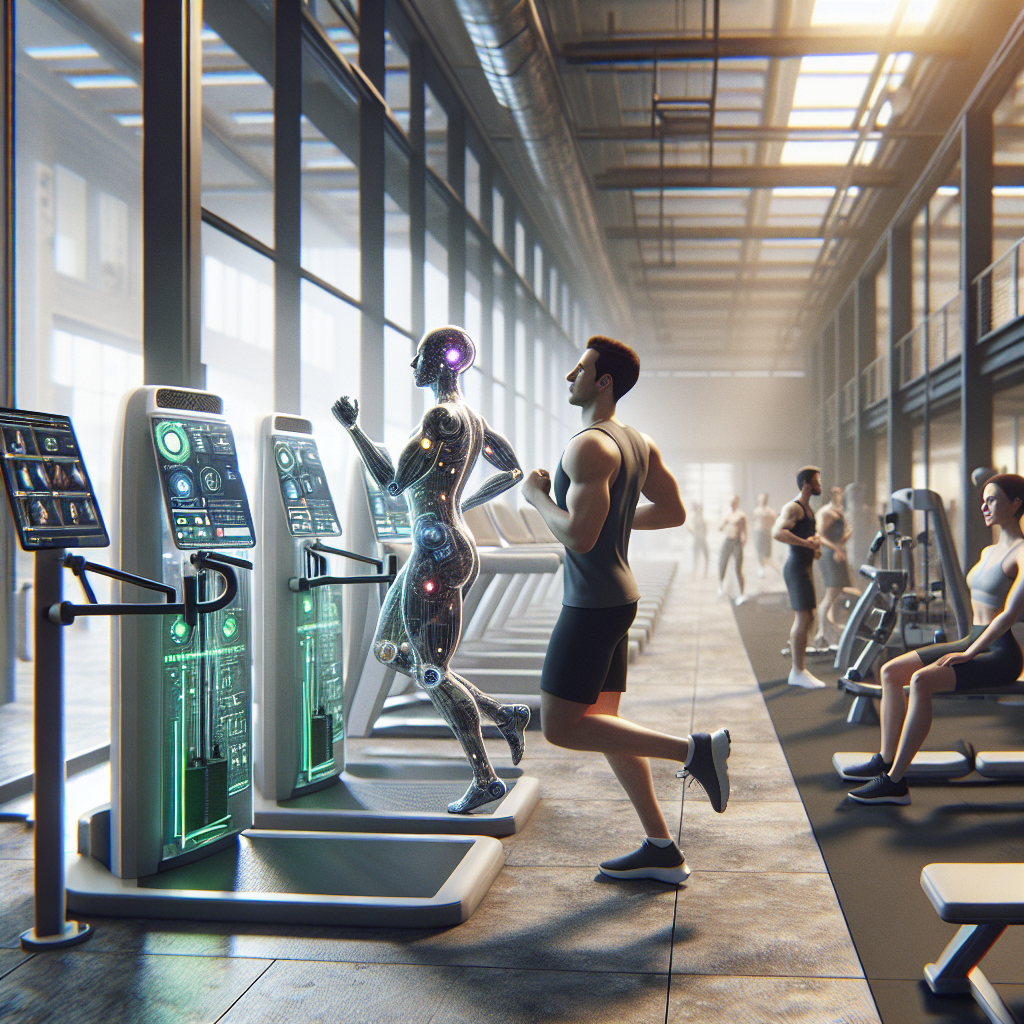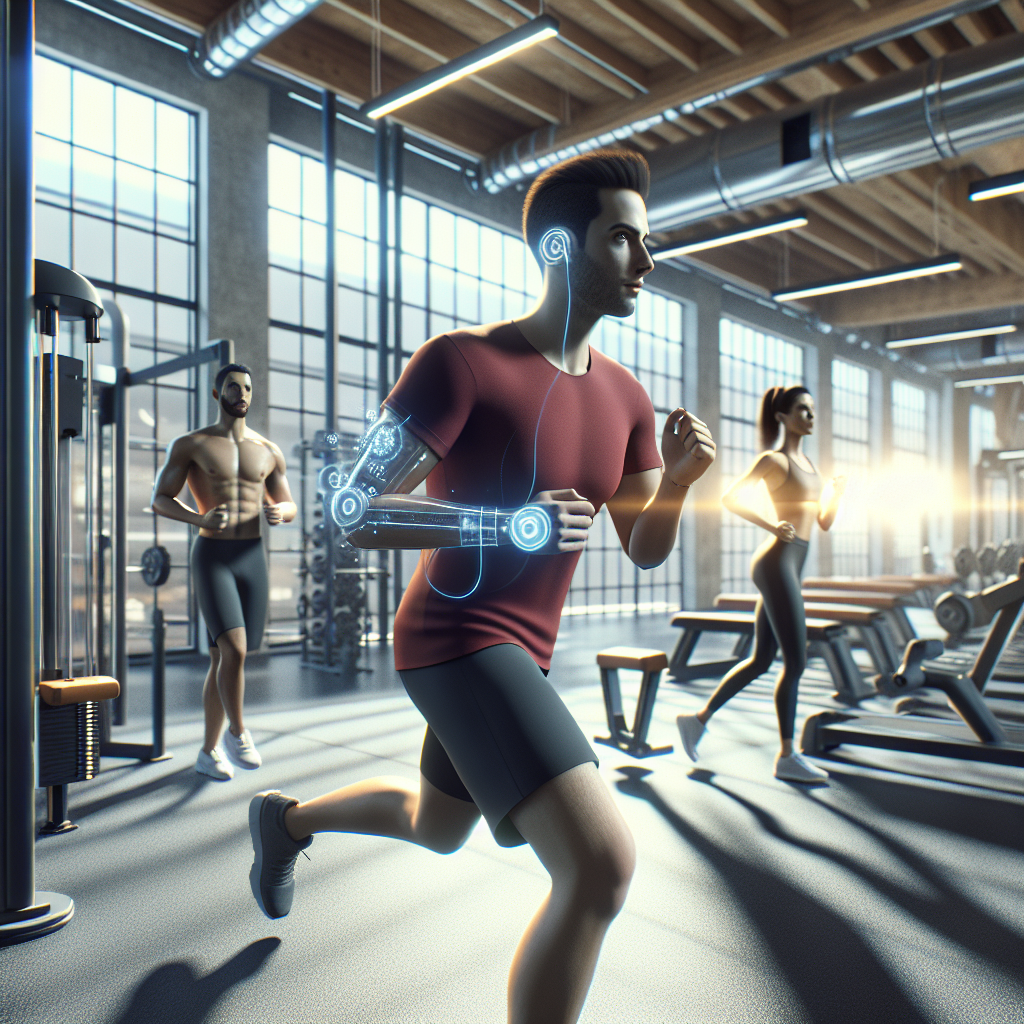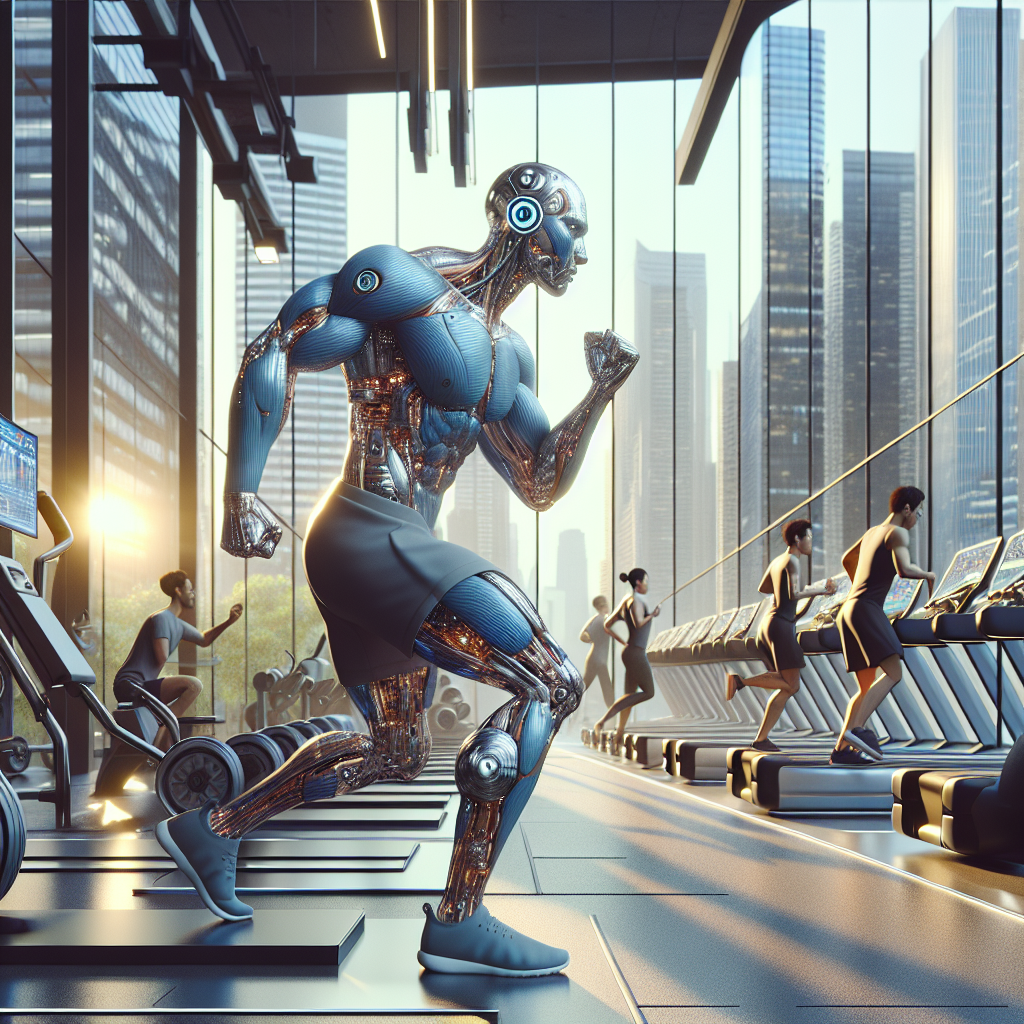Artificial Intelligence (AI) is set to revolutionize next-generation wearable fitness trackers by 2025, enhancing their capabilities beyond simple activity tracking to deliver personalized health insights, predictive analytics, and seamless integration with a broader digital ecosystem. As AI technology advances, these wearables will become more sophisticated, offering users not only the ability to monitor physical activities but also to gain deeper insights into their overall health and wellness. This transformation is driven by advances in machine learning algorithms, sensor technology, and data analytics, which together empower devices to provide real-time feedback and adaptive recommendations for improving health outcomes.
The Evolution of Wearable Fitness Trackers
Wearable fitness trackers have come a long way since their inception, evolving from basic pedometers to sophisticated health monitoring devices. Initially, these devices primarily focused on counting steps and tracking basic physical activity. However, as technology advanced, the scope of data these wearables could capture expanded significantly.
From Pedometers to Smart Wearables
- First Generation: Simple pedometers that counted steps.
- Second Generation: Devices that included heart rate monitors and GPS for tracking running routes.
- Third Generation: Smart wearables integrated with smartphones, offering notifications, advanced sensors, and improved battery life.
Current Capabilities and Limitations
Today, wearable fitness trackers can monitor a wide range of biometric data, including heart rate variability, sleep patterns, and blood oxygen levels. Despite these advancements, current devices often face challenges such as limited battery life, data accuracy issues, and the need for improved personalization.
The Integration of AI in Wearable Technology
AI is poised to address many of the limitations faced by current wearable technologies. By leveraging AI, devices can offer more accurate data analysis, personalized health recommendations, and predictive insights that were previously unattainable.
AI-Driven Data Analysis
One of the core advantages of AI in wearable technology is its ability to analyze large datasets quickly and accurately. Machine learning algorithms can identify patterns in user data that are imperceptible to humans, providing deeper insights into a user’s health and fitness levels.
- Pattern Recognition: AI can recognize patterns in biometric data to predict potential health issues.
- Data Accuracy: AI improves the accuracy of data collected from wearables by filtering out noise and errors.
Personalized Health Recommendations
AI enables wearables to provide personalized recommendations based on individual health data. By analyzing a user’s historical data, AI can suggest tailored fitness routines, dietary plans, and lifestyle changes.
- Adaptive Workouts: AI adjusts workout plans in real-time based on user performance and feedback.
- Nutrition Advice: Personalized dietary recommendations are made based on activity levels and health goals.
Predictive Health Insights
AI’s predictive capabilities allow wearables to alert users about potential health risks before they become serious issues. This proactive approach to health management can significantly improve user outcomes.
- Early Warning Systems: AI models can predict the likelihood of health events, such as cardiac issues, based on user data trends.
- Long-term Health Monitoring: Continuous data analysis helps in understanding chronic conditions and tracking their progression.
AI and Sensor Technology in Wearables
The integration of AI with advanced sensor technology allows for the collection of more comprehensive and accurate data, which is crucial for delivering high-quality health insights.
Advanced Biometric Sensors
Modern wearables are equipped with a variety of sensors that capture detailed biometric data. These sensors include PPG (photoplethysmography) for heart rate monitoring, accelerometers for motion detection, and SpO2 sensors for measuring blood oxygen levels.
- Improved Accuracy: AI algorithms refine sensor data by correcting inaccuracies and compensating for external factors.
- Comprehensive Data Collection: The combination of multiple sensors provides a holistic view of the user’s health.
Seamless Integration with IoT
AI-powered wearables can seamlessly integrate with the Internet of Things (IoT) ecosystem, allowing for enhanced connectivity and data sharing across devices.
- Smart Home Integration: Wearables can communicate with smart home devices to adjust environment settings based on user preferences.
- Healthcare Ecosystem: Data from wearables can be shared with healthcare providers for better diagnosis and treatment planning.
Challenges and Ethical Considerations
While AI offers significant benefits, its integration into wearable fitness trackers also presents challenges and ethical considerations that must be addressed to ensure user trust and adoption.
Data Privacy and Security
With increased data collection comes the responsibility to protect user information. Ensuring data privacy and security is paramount in maintaining user trust.
- Encryption: Data should be encrypted both at rest and in transit to prevent unauthorized access.
- User Consent: Clear policies on data collection and usage should be communicated to users.
Bias and Fairness in AI
AI models can inadvertently perpetuate biases present in training data, leading to unfair or inaccurate health insights for certain demographic groups.
- Inclusive Data Collection: Diverse datasets should be used to train AI models to ensure fairness.
- Algorithm Audits: Regular audits of AI algorithms can help identify and mitigate biases.
Future Trends in AI-Powered Wearable Fitness Trackers
As AI technology continues to evolve, several trends are expected to shape the future of wearable fitness trackers, providing even greater value to users.
Increased Personalization
The future of wearable fitness trackers lies in hyper-personalization, where devices will offer highly individualized insights and recommendations tailored to each user’s unique needs and preferences.
Integration with Digital Health Platforms
Wearables will increasingly integrate with digital health platforms, offering users a more comprehensive view of their health by combining data from multiple sources.
Augmented Reality and Virtual Coaching
AI-powered wearables are expected to incorporate augmented reality (AR) features, providing users with virtual coaching experiences that enhance their workouts and fitness routines.
Conclusion
The role of AI in shaping next-generation wearable fitness trackers is transformative, offering users unprecedented insights into their health and wellness. As AI technology advances, wearables will become more personalized, predictive, and seamlessly integrated into the digital health ecosystem. By addressing challenges such as data privacy and algorithmic fairness, the potential of AI-powered wearables can be fully realized, paving the way for a healthier future.
Through continuous innovation and the incorporation of cutting-edge AI technologies, the future of wearable fitness trackers looks promising, set to deliver on the promise of improved health outcomes and enhanced user experiences by 2025 and beyond.
Transform Your Fitness Journey Today!
No More Guesswork, Only Results
Discover the future of fitness with PurelyFit’s AI-powered workouts and personalized nutrition plans. Whether you’re looking to build strength, lose weight, or maintain a healthy lifestyle, our innovative platform is designed to help you achieve your goals faster and smarter. With over 600,000 recipes tailored to your dietary preferences and real-time progress tracking, you can stay motivated and see results like never before.
Join the revolution and make your fitness journey smarter, simpler, and more effective. Start your transformation with PurelyFit and experience the difference AI can make!












